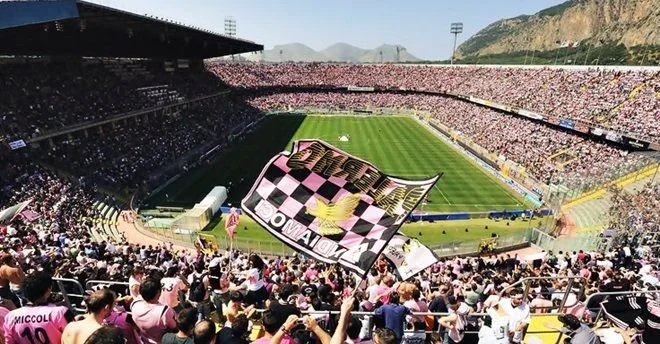The Mafia, the Club, and the Stands: How Cosa Nostra Quietly Ran Football in Palermo
Palermo is one of those clubs where football doesn’t just live — it breathes through the streets, in markets, and on the walls of its neighborhoods. But what many fans never saw — and probably never will — is how deeply Cosa Nostra, Sicily’s infamous mafia network, was involved in the city’s football scene.
But not how you might think.
Unlike other Italian crime groups that jumped into illegal betting, merchandising, and even fixing games, Cosa Nostra didn’t care about controlling what happened on the pitch. They weren’t trying to make stars or bankroll transfers. What they wanted was power — and in Sicily, power starts with territory.
The Business of Territory
In Palermo, the mafia didn’t need to own the club. They controlled the space around it.
They used US Palermo’s rise to Serie A in the 2000s not to build criminal business empires, but to reinforce their authority through mediation and influence. Think:
Deciding which fan groups got free tickets
Choosing which businesses got construction contracts (like stadium renovations)
Pressuring club managers to pick their kids for youth teams
Hiring stewards they could trust to look the other way at turnstiles
If you controlled the stadium, you controlled a chunk of public life. And Cosa Nostra made sure it was their people handing out the perks.
Mafia Mediation, Not Match Fixing
Instead of running criminal rackets inside the club, Cosa Nostra worked around it. They “mediated” conflicts between ultra groups, helped smooth out problems between club officials and the streets, and ensured that no serious trouble spilled into something that would attract police attention.
Violence? Rare. They preferred quiet influence, reputation, and favors — a kind of parallel government, where everyone knew who really ran things.
Even the club’s general manager eventually “got the picture,” holding meetings with ultras, agents, and mafia affiliates to keep the peace — and keep the tickets flowing.
Why Palermo Was Different
So why didn’t the Sicilian mafia dive into the same corrupt opportunities as other criminal groups?
A few reasons:
Cosa Nostra’s roots are in land control and estate management — not flashy business plays.
By the 2000s, police pressure and internal conflicts had weakened their national reach.
And maybe most importantly: they preferred staying invisible. Media attention around football was too risky.
That said, they didn’t completely sit back. When Palermo rose, so did interest from local mafia “families.” The stadium’s location made it a point of pride and influence. Conflicts even broke out between mafia groups over who got ticket quotas and visibility inside the ultras.
But even then, they settled it quietly — through meetings, not blood.
The Fall of US Palermo
When US Palermo collapsed financially in 2019 and became Palermo FC, the stakes dropped. A third-tier club didn’t offer the same visibility — or opportunity. The mafia’s presence shrank, along with the crowds.
Still, their past influence lingers like an echo — not in scorelines or scandal, but in how football in Palermo was managed from the stands, not the dugout.
Final Thought
In most cities, mafia stories in football involve betting syndicates or match-fixing. In Palermo, it was something subtler — a system of favors, silence, and social control wrapped around a football club.
For Cosa Nostra, football wasn’t just a game. It was a stage — one more way to remind the city who really owned the streets, the stands, and the soul of the club.

